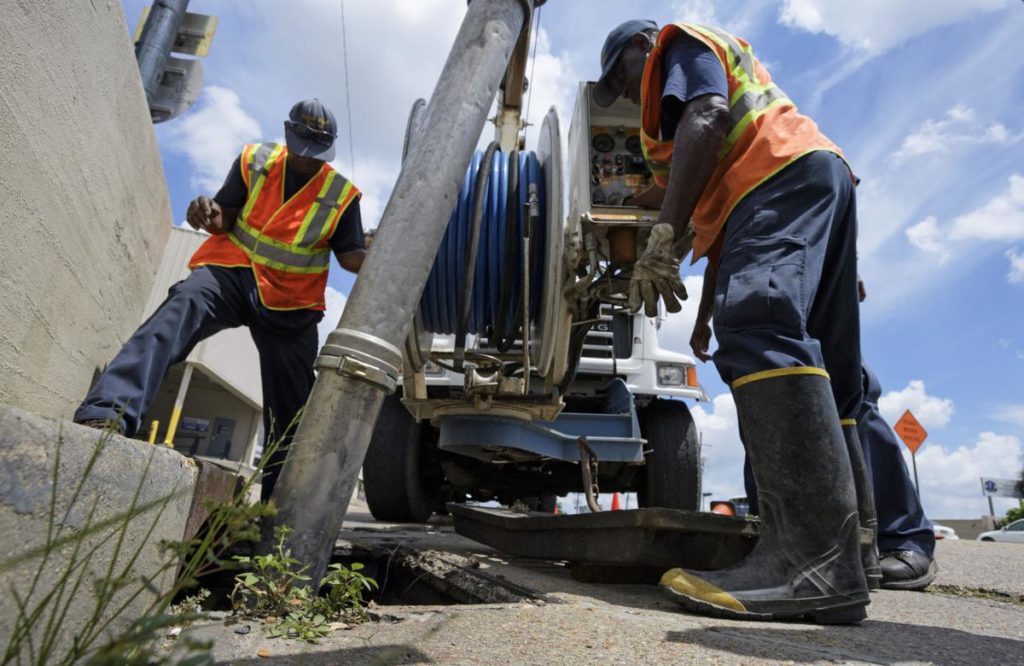
“IF YOU WORK IN NEW ORLEANS YOU SHOULD BE ABLE TO AFFORD LIVING HERE.”
On August 13, Department of Public Works employees said enough is enough. They left work and marched into City Hall and demanded a meeting with Mayor Cantrell. These workers are underpaid and overworked. No matter the weather, they are out there trying to do whatever they can with a limited workforce to patch potholes and clean drains.
The important city workers were demanding $18 an hour, hiring more workers, safety and training. They pointed out that residents suffer too with unfilled potholes and clogged drains.
Toinette Johnson, a dump truck operator for DPW, told WDSU: ““That’s why our streets are not being repaired. That’s why they constantly complain about the drains and the water. We don’t have enough manpower to (do the work).” Kennan Mitchell operates a vacuum truck for DPW. He said contractors are hired to do the same work that he does, cleaning catch basins, for more than twice the pay.
Johnson further explained how while they are required to live in Orleans Parish, they don’t make enough to afford the rising rents. “I think if you want to work for the city of New Orleans, you should be able to afford to live in the city of New Orleans.”
The city spends 63% of our tax dollars on prisons and cops but is ignoring the fact that these workers and other city workers are not making enough to get by. With rents, taxes, food, utilities, and cable costs rising, studies have shown you need to make $19 an hour to get a two bedroom apartment in Orleans Parish.
The city has given out grants and tax exemptions to real estate developers and other companies while ignoring how the important people who keep everything running are making out. The city has allowed $140 million in city mandated hotel taxes to be given to big capitalist-controlled commissions. But city workers, like these Department of Public Works employees, are ignored. Salaries of the executives in this and other departments like Sewage and Water Board keep going up, while hiring and workers salaries and benefits are inadequate. The Mayor and City Council should make it a priority to immediately give living wages to all city workers, rather than outrageous salaries and perks to commissioners and executives
